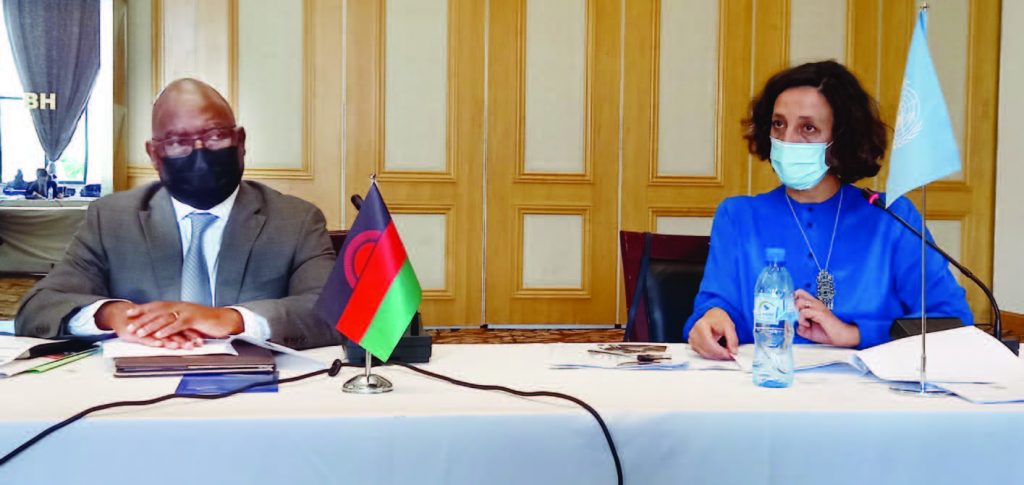Ministry moves to craft Covid-19 recovery plan
Ministry of Finance says it is working with the United Nations (UN) to develop a Covid-19 economic recovery plan to cover all the affected key sectors of the economy.
Secretary to the Treasury Chauncy Simwaka said this in an interview yesterday on the sidelines of the Government-UN Joint Strategy Meeting to review the state of implementation of various developments of cooperation.

He said development of the recovery plan is at an advanced stage, being worked on by Treasury, the National Planning Commission (NPC), the UN and other strategic institutions.
Said Simwaka: “We are working on the concepts and soon we will finalise and come up with specific programmes to intervene on various sectors of the economy to recover from devastating effects of Covid-19.
“Covid-19 exposed gaps in public service delivery, you know how overstretched we were in various sectors, including health and education.”
On her part, UN resident coordinator Maria Jose Torres advised government to ensure that it adopts a holistic approach on the recovery plan by prioritising rural areas.
She said that about 70 percent of the country’s population live in rural areas; hence, the need to be prioritised to ensure no one is left behind in the recovery process.
Said Torres: “If we want to realise the Malawi 2063, we certainly need to engage in a strong way the young people in rural areas to access training, to access business, connecting them to supply chain of agro industry to achieve transformation that Malawi is aspiring”.
She said if Malawi aspires to achieve the middle-income status, concentration should be on uplifting economic standards of the rural citizens.
NPC director general Thomas Chataghalala Munthali last week said they are working on a 10-year implementation plan which will spell out initiatives and projects to be implemented under the Malawi 2063.
Covid-19 has greatly affected the economy, with businesses struggling to sustain their wage bill, leading to the laying off of staff while the national budget deficit continues to widen.
This fiscal year, Treasury projects a fiscal deficit of K810 billion or 8.8 percent of the country’s gross domestic product.
The deficit is expected to be covered through foreign financing of K246.3 billion while the balance will be financed through domestic borrowing.





